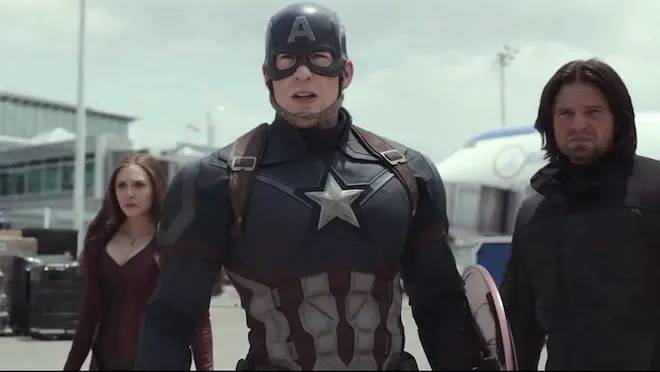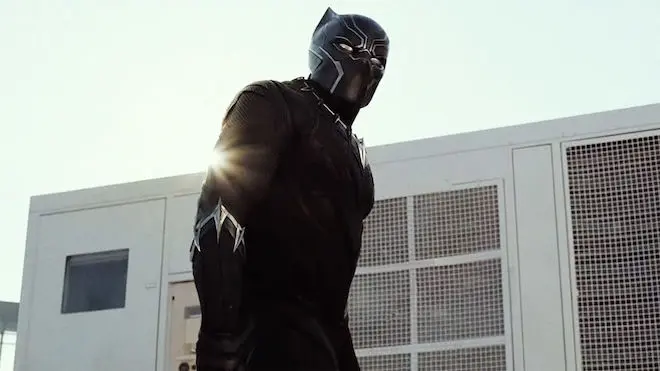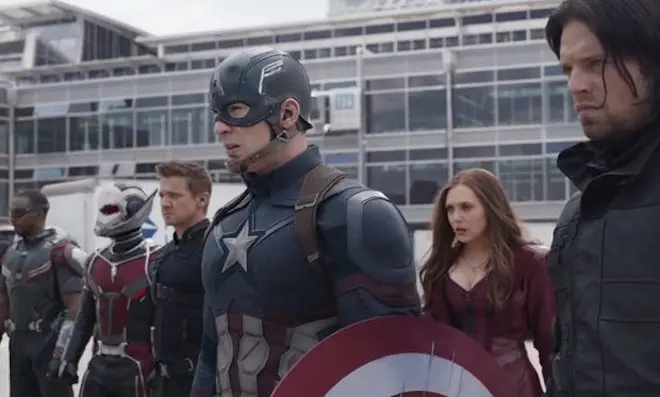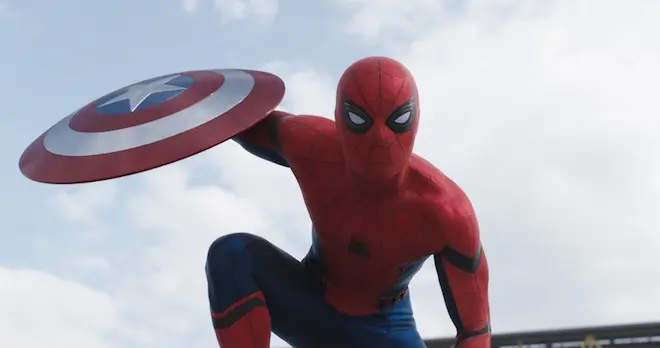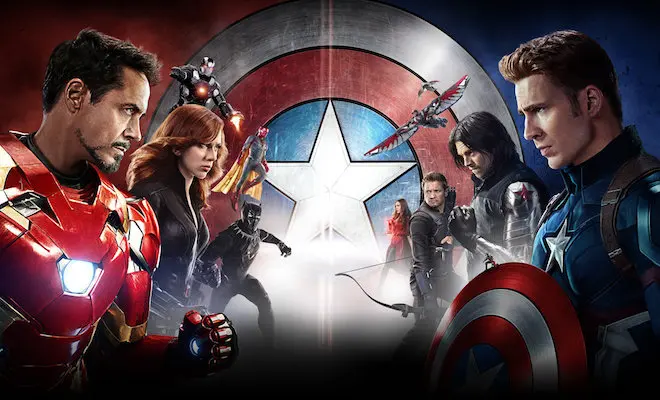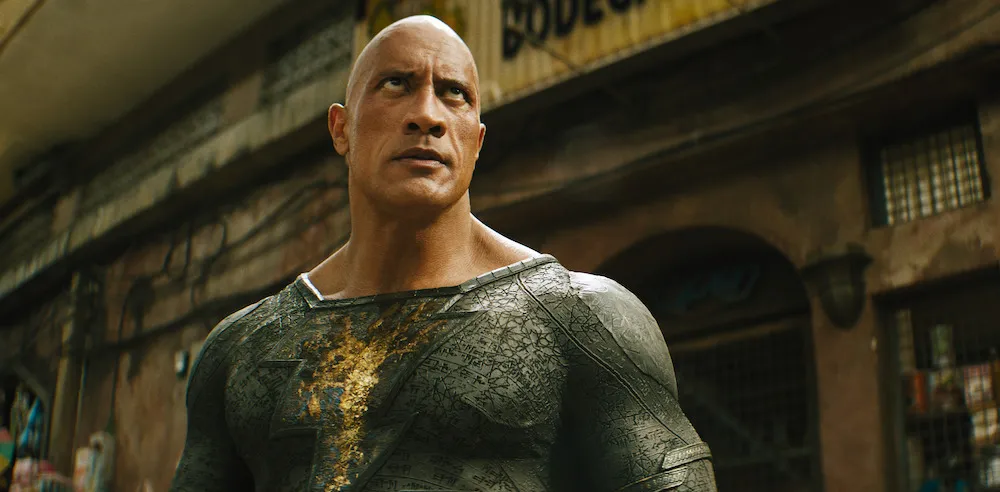When it’s all said and done, Captain America: Civil War is sort of a misnomer. This isn’t just the third Captain America movie; this is more like the third Avengers movie. Or it’s the fourth Iron Man movie. Or maybe it’s all three, and more. Whatever previous superhero franchise you want tag this one to, it all still boils down to one thing: Civil War is a test for the upcoming Avengers: Infinity War films, which will reportedly see over 60 heroes and villains battling it out on screen. Suddenly, the disagreements between members of the Avengers seem like very small potatoes.
The central conflict in Captain America: Civil War has its roots in the previous Avengers films. As Civil War opens, an Avengers mission to stop Crossbones (a returning Frank Grillo) goes awry in Lagos, resulting in more death and destruction, and Earth’s Mightiest Heroes come under even more scrutiny. Due to the actions during the Battle of New York in 2012’s The Avengers and the mass destruction of Sokovia in last summer’s Avengers: Age of Ultron, the government wants a tighter leash on the Avengers team — and its heroes.
While Tony Stark (Robert Downey, Jr.) agrees that oversight is needed, Steve Rogers (Chris Evans) doesn’t, having seen how working for an organization with its own agenda (S.H.I.E.L.D./Hydra) can be bad, as we saw in 2014’s Captain America: The Winter Soldier. Rogers will not go down that road again, and this disagreement causes strife when Cap refuses to sign the Sokovia Accords, an oversight plan initiated by now-Secretary of State Thaddeus Ross (William Hurt, returning from The Incredible Hulk) and sanctioned by the UN.
During all of this, the Winter Soldier (Sebastian Stan) is still on the loose, and when another attack — this time on the UN itself — occurs, and there is evidence that the former-Bucky is involved, the Avengers are tasked with bringing him in — dead or alive. One of the victims in the UN attack was none other than the King of Wakanda, T’Chaka (John Kani), and his son, T’Challa (Chadwick Boseman) swears to avenge his father’s death by taking on the mantle of ancient Wakandan warrior/protector, the Black Panther.
Captain America goes against the order, making himself and his closest allies, including Falcon (Anthony Mackie), Scarlet Witch (Elizabeth Olsen), Hawkeye (Jeremy Renner), and Ant-Man (Paul Rudd) fugitives from the Avengers. Tony recruits War Machine (Don Cheadle), Vision (Paul Bettany), Black Widow (Scarlett Johansson), and Black Panther to his side. Tony also finds a kid (Tom Holland) in Queens, New York, who has been making headlines as a wall-crawling, web-slinging hero. Together, the two teams meet at an airport in Leipzig, and a huge battle breaks out.
Of course, all of this is a cover for more nefarious deeds by the mysterious Helmut Zemo (Daniel Bruhl), who uses the heroes against themselves for his own sense of vengeance, and his plans involve the history of not only the Winter Soldier program, but of Tony Stark’s parents. So, as you can see, the script by Christopher Markus and Stephen McFeely has many layers, with lots of moving pieces, and coming off the sublime Captain America: The Winter Soldier, the writing duo have proven they can handle the weight of the plot and of the many, many characters. They also do a great job of updating the audience on the lives of the characters since we last saw them, with Tony Stark getting some pretty big revelations as the film goes on.
In fact, Civil War — to date — has the biggest cast of any Marvel film, and, as mentioned, serves as a test for what is to come in the upcoming Avengers: Infinity War two-parter in 2018 and 2019, for which Markus and McFeely are also writing.
The directing duo of brothers Anthony and Joe Russo once again prove that they are the team needed to move the Marvel Studios films into the future, as they follow up The Winter Soldier with another solid entry. The pacing of Civil War isn’t as tight as in Winter Solider, nor is it as great of a film (The Winter Soldier, in my opinion, is the best comic book film made to date), but it still does an amazing job with such heavy themes and with so many faces, both old and new. It might be the perfect Marvel superhero movie, whereas The Winter Soldier was the perfect Marvel political thriller, one that changed the Marvel Universe almost as much as Civil War does.
In fact, Black Panther and Spider-Man both steal the film from the established heroes, and Paul Rudd as Scott Lang/Ant-Man is damn near perfect in his role, adding humor when it is separately needed, and he is part of one of the best, biggest, jaw-dropping scenes in any Marvel film. I also want to point out that Chadwick Boseman absolutely nails T’Challa — both physically and in his performance, and after his awful attempt at an accent in Gods of Egypt, here he completely loses himself as the African Warrior King and his solo movie is now must-see.
Many people — fans and critics alike — wonder if superhero movie fatigue will set in soon, but when Marvel Studios introduces new heroes each time an event film rolls out, it helps to keep the genre fresh. Black Panther and Spider-Man — who has five previous films with Sony Pictures and still manages to come off fresh and fun — are a testament to the draw of the comic book movie and the genre’s future.
Also, since this a Marvel film, it begs to mention that there are two post-credits stingers — one mid-credits, one post, so be sure to stay for both.
It’s hard to imagine where the Avengers as a team can go after the events of Captain America: Civil War, as they have never been more fractured and weak, but maybe that’s the point. Thanos is coming, and he’s bringing a whole lot of hurt with him, and the world — and the universe — will need our heroes to be their strongest to defeat him. The Marvel Cinematic Universe is in dire shape, and maybe some magic is needed in the form of Dr. Stephen Strange, whose film is next on the docket this November, but until then, the casualties of war have never been felt more, and our heroes have never been in worse shape.
If Captain America: Civil War was, in fact, a test run to see how so many characters and heavy themes could work in one film, the Russos, Markus & McFeely, and Marvel Studios have all passed. Civil War is a film that works on so many levels, and when it doesn’t work, it doesn’t break the entire franchise — unlike the other comic book company’s mess of a film that came out two months ago. Marvel Studios and Disney have shown the world how to make a film of this magnitude without compromising the characters or the situations, and for fans, old and new, we can all be happy that at least someone gets it.
Captain America: Civil War is rated PG-13 and is in theaters on May 6.
